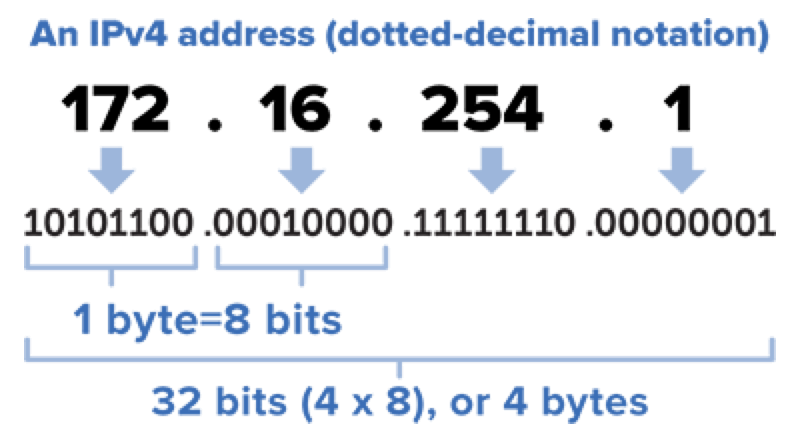| My IP Address Is | |
| Your Public IPV4 is | |
| Your IPV6 is | |
| Your Local IP is | |
| IP Location | |
| ISP | |
| User Agent | |
| Device Type | |
| OS | |
| Browser | |
| Screen Size | |
IP or Internet Protocol Address is a unique numerical value that is assigned to each device connected to a network and is used for the differentiation of devices. Different devices connected to a network are identified and differentiated from each other on the basis of their IP address.
Along with the identification and differentiation of devices, the IP address is also used can also be used to reach your device. Through IP addresses, different devices can communicate with each other.
It can also be used to find the location of a device and along with that, several other things about a device such as the ISP, OS, device name, etc.
IP Address has two versions, IPv4 and IPv6. Both of them are used for the identification of the devices connected to the internet.

IPv4 is a 32-Bit IP Address. It consists of numbers only so, it is a numeric address and its binary bits are separated by a period (.). Example of a typical IPv4 Address is 22.144.543.125
IPv6 is a 128 Bit IP Address. It consists of numbers and alphabets so, it is an alphanumeric address and its binary bits are separated by a colon (:). Example of a typical IPv4 Address is 1001:0bb8:0000:0000:0000:ff00:0012:6542
IP Address is a very important numerical value and it can be considered as the address of your device. It contains all the vital information regarding the device that you are using. It can be static or dynamic which is assigned by your internet provider.
There are two types of IP Addresses, Public IP Address, and Private IP Address.
Public IP Address
A Public IP Address is the one that is visible to everyone on the internet and it can be accessed over the internet. It is used to send, receive, and exchange information between two devices connected to the internet. Public IP Address is different for different devices connected to the internet.
Private IP Address
A Private IP Address is not routed on the internet and is for local networks only. No traffic can be sent to private IP addresses from the internet and they are meant for local networks only and to exchange information between devices connected to a local network.
Although most of the times when you perform an IP search you will get a broader result of it’s location and not specific user address such as State or it’s ISP (Internet service provider) location.
When you visit any website their analytics shows your data such as your IP address, user agent, device type so in order to hide or mask your IP you should use a VPN (virtual private network) which reroutes your internet through it’s server which then serves as your main internet protocol as such it hides your true identity.
A VPN is useful especially in countries with geo-restrictions and internet blockades. VPN itself is not illegal, however what you do with this technology determines the legality. Most company and organizations leverage this technology to browser their sensitive websites in safer environment.
